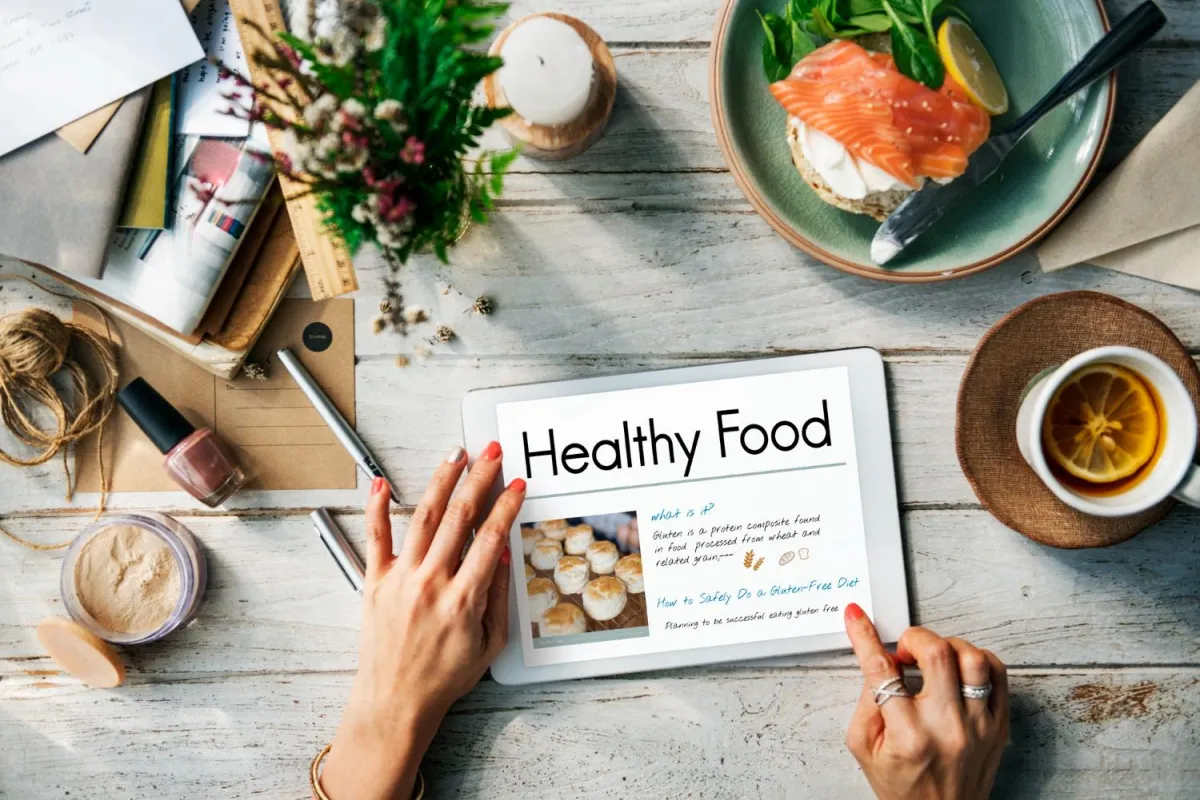[email protected] | 509.607.9496
Client Portal
Articles

10 Healthy Eating Tips for a Balanced and Nutritious Lifestyle
If your dream is of an active and healthy life, your most crucial habit should be proper eating. Your psychological, emotional, and physical condition does get better with a balanced diet. But how you eat these healthy meals can help you to realise your dreams for life.
Since it will unveil the top 10 healthy easting tips of very successful and influential people globally, this article will show you how to eat. Stay near then to have a universe of options and everlasting health.
Top 10 Healthy Eating Tips
These 10 rational, scientifically based suggested healthy eating guidelines will enable you to keep a balanced diet free from guilt without feeling overburdled.
Eatat a variety of foods.
One meal does not include all the components your body requires. Vitamins, minerals, proteins, good fats, carbs will help you better balance your diet. Moreover supporting you to boost your metabolism are fruits, vegetables, whole grains, lean meats, and good fats.
"Eat the rainbow" with rich fruits and vegetables since every colour denotes distinct vital elements.
Cut processed foods and up the whole foods count.
Whole foods are uncooked foods bursting in natural nutrients, lightly processed meals.
Of these, these constitute:
Vegetables and fresh fruit
From brown rice to quinoa and oats, whole grains abound.
Eggs, lean meats, nuts, shellfish.
Conversely, processed foods can have harmful fats, additional sugars, and preservatives that compromise your health. Reduce fast dinners, packaged snacks, and sweet drinks.
3. Control Your Portion Calculation
Even nutritious foods in great quantities could cause weight increase. Reducing meal quantities helps you control overindulgence and keep a decent weight.
These are some basic ideas in portion control:
Little plates help you to control your dinner overindulgence.
Look at food label serving sizes.
When you feel good, stop eating—not full.
Steer clear of directly from the bag or box; instead serve yourself.
4. Remain Hydrated
General well-being, digestion, circulation, even basic survival depend on enough water being drunk. Many confuse hunger for thirst, which drives unnecessary eating.
If you work physically, try for at least eight glasses of water daily—more if needed. Try cutting less on sugary drinks, sodas, and too much caffeine since these can lead to dehydration and ineffective calorie burning.
5. Choose Smart Fats
Essential for brain function, hormones, and energy are lipids. Still, none of the fats are created equally.
Good fats are almonds and nuts.
Oil derived from coconut and olive plants
Salmon, mackerel, sardines are among fatty fish.
Foods high in unhealthy fats to avoid:
Trans fats included in baked products and fried food
Too much processed meat and dairy-based saturated fats
One better replacement than fried food is grill, bake, or steam.
6. consume more foods. Strong in Fibre
Digesting food, maintaining gut health, and extending your fullness all depend on fibre. High fibre foods help control weight, lower cholesterol, and prevent constipation.
Foods high in fibres include:
whole grains—quinoa, brown rice, oats.
legs, beans
Pears, apples, bananas—fruits
For best digestive health, go for at least 25 to 30 grammes of fibre everyday from vegetables including broccoli, carrots, and spinach.
7. Restrain Sugar and Salt
Overindulging in sugar can cause diabetes, heart disease, and weight gain. Extra salt can raise blood pressure and aggravate renal problems.
Cut extra sugar and salt by:
Replace refined sugar with natural sweeteners fruit or honey.
Review food labels and stay away from items heavy in sodium and sugar.
Taste-wise replace herbs and spices for salt at home.
Cut yourself off from processed snacks, energy drinks, and sweet sodas.
8. Making Ahead Meal Plans
Cooking a meal helps you choose better foods and lessens the temptation from bad fast food. Furthermore helping one save time and money is meal planning.
Simple concepts for cooking a meal:
Cook food in bulk; then, divide it.
Among good snacks, keep almonds, apples, or yoghurt close at hand.
Create a grocery list grounded in nutrient value.
9. Practice conscious eating.
Knowing where, how, and why you eat in addition to what is part of mindful eating. It improves the relationship one has with food and prevents overindulgence.
Eat mindfully; switch off the TV and pack your phone to release yourself.
Eat modestly and chew softly.
Eat when hungry; stop when you are full; pay great attention to the signs your body communicates.
Learning other stress-reducing techniques like meditation or exercise helps you stay away from emotional eating.
10. Apply the eighty-two percent rule.
A nutritious diet does not mean you have to give up your beloved indulgences totally. The 80/20 rule lets one get in line:
Eighty percent of your diet should come from all the foods heavy in nutrients.
Twenty percent can cover indulgences include sweets, your favourite dinner, or a little dessert.
This method not only enables long-term sustainable eating but also helps to prevent feelings of constraint.
Final Words
Good eating is more about little, persistent changes that enhance your general health than about rigid diets or restrictions. Including these 10 innovative eating ideas into your daily diet will not only improve your body but also aid you long term both physically and mentally.
Advance better behaviours gradually starting with one or two changes at a time. Your nice future self will be.

We envision a future where integrative health becomes the standard of care. Our vision is to create a world where every individual has the tools, knowledge, and support to live healthier, more fulfilling lives.
Menu
Information
© 2025 IQ Performance Health LLC - All Rights Reserved.





